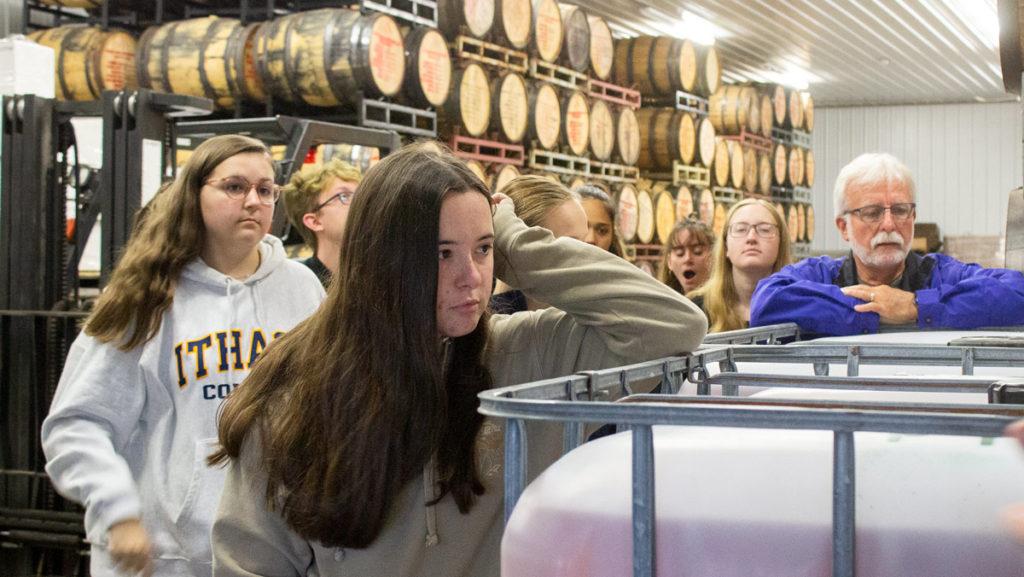Ithaca is surrounded by vast farmland and boasts a diverse culinary culture, yet faculty like Jill Loop and Carl Penziul feel that many Ithaca College students never experience any of it, so they created a class to change that.
Loop, instructor in the Department of Journalism, and Penziul, lecturer in the Department of Media Arts, Sciences and Studies, teach the Ithaca Seminar (ICSM) “Farm to Table: Conscious Cuisine for the 21st Century,” which aims to teach freshmen at the college about sustainable agriculture and the Ithaca area through practical experience.
Most weeks, the class visits a local food producer and tours the location, learning about topics ranging from ethical treatment of livestock to the differences among types of wine, Penziul said. The seminar was first offered three years ago and enrolls up to 17 students every fall semester. The class is intentionally kept smaller than most ICSMs to keep travel costs low, Loop said. Loop said the class takes two school-owned vans on excursions, with Loop and Penziul driving each vehicle.
Freshman Rachel Kostival said the class visited a goat farm and traveled to a pig farm in one day to learn how goat cheese and pork products were made and how the animals are raised.
“The goats were extremely cute, but it’s also interesting to see how goat cheese was produced and the differences between cow and goat cheese,” Kostival said. “And I also did goat yoga with the goats, so that was fun.”
Starting this semester, students were charged a $50 course fee, which Penziul said was intended to offset the cost incurred from going on tours around the area. While the college provides a $200 stipend for all ICSMs and transportation costs are covered by the Center for Civic Engagement, Loop and Penziul often pay out of pocket for the tours and tour guide tips, Penziul said.
“That course fee doesn’t cover everything,” Penziul said. “In fact, it might cover a third when we’re all said and done, but it helps a little bit for those increases we don’t expect.”
The final project involves cooking a meal from scratch with fresh ingredients at a local kitchen, usually Coltivare, a farm-to-table restaurant located in downtown Ithaca.
On weeks where the class does not go on a trip to a local food producer, Loop and Penziul pay for speakers like representatives from Heart & Hands Wine Company to lecture the class on topics like food science and the importance of soil on the growth of plants.
Every year, the course trips are changed to offer new experiences to the incoming freshmen, Loop said. Some examples of trips are pig and goat farms, Ithaca Beer Company, Six Mile Creek Vineyard and Distillery and various wineries in the area. Penziul said that every year they attempt to return to Coltivare as they feel it offers a good venue for students to have their final exam.
Junior Juliette Vetare said she fell in love with the course when she took it her freshman year.
“I remember all my friends were jealous of me my freshman year because they were in seminars that they hated, and I was in one I literally could not wait to go to every single week,” Vetare said. “Jill and Carl also made that possible because they have a passion for this whole farm–to–table thing, and they had a passion for making the seminar work.”
Vetare liked the class enough to come back the following fall as a peer leader, a role in which she helped guide common hour discussions during class time.








